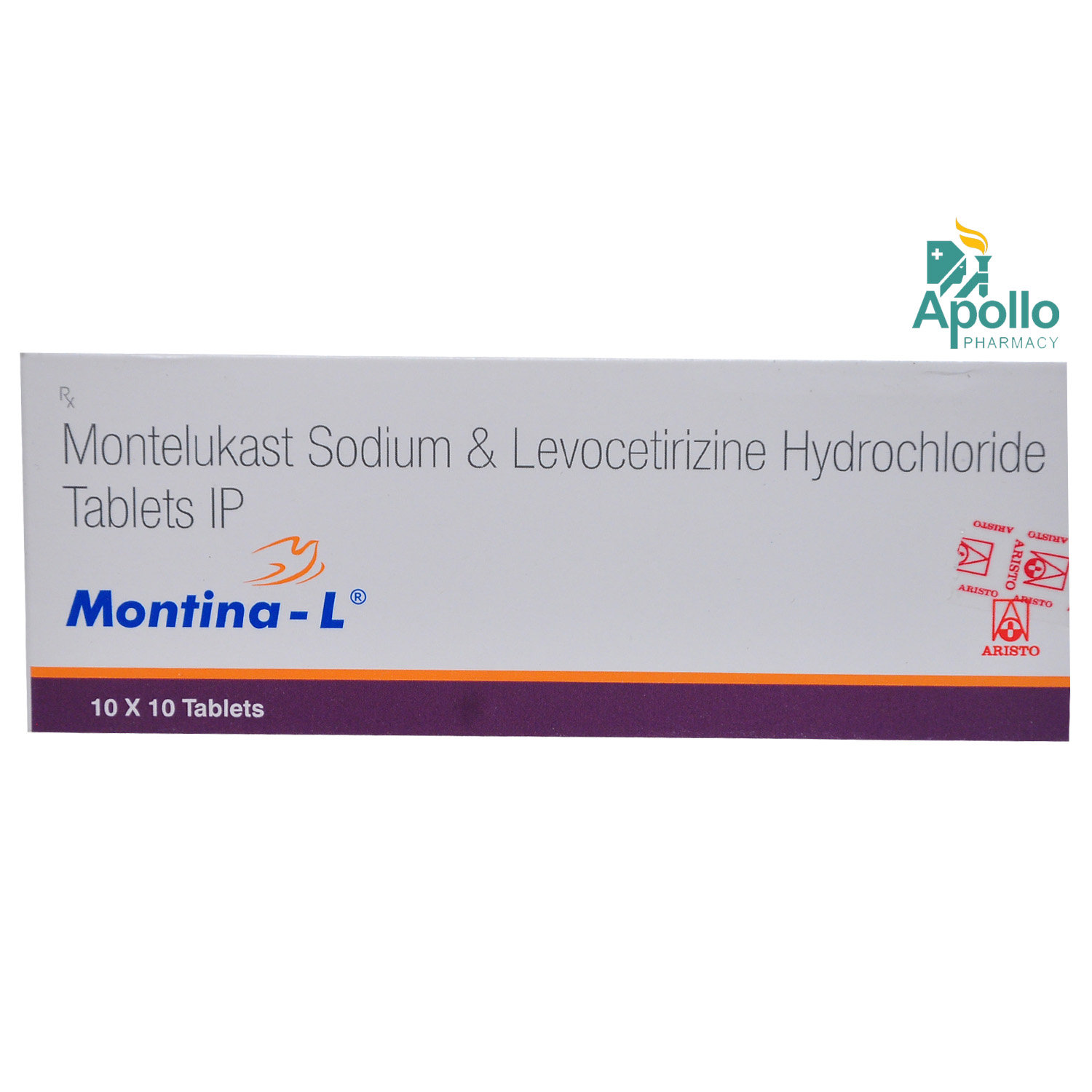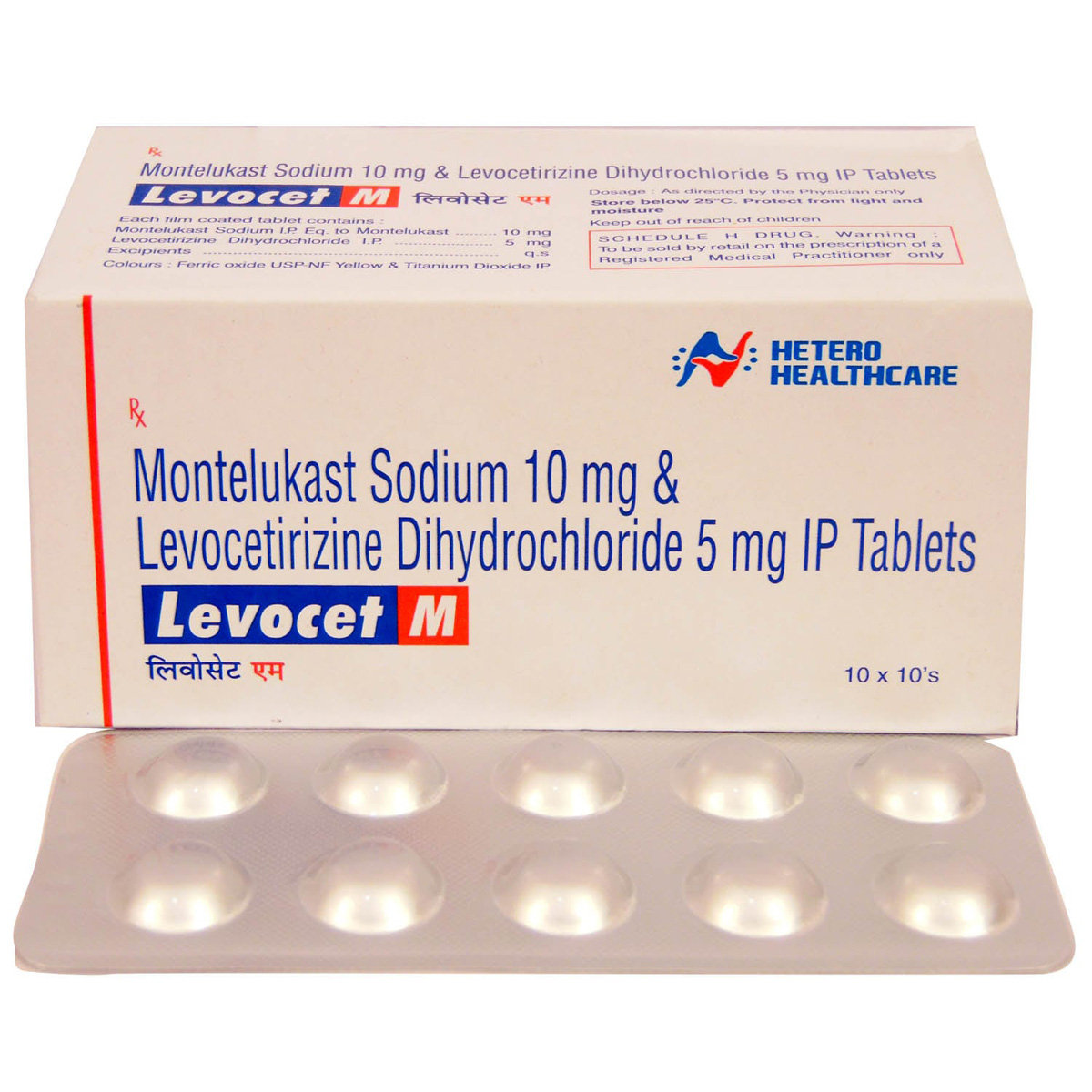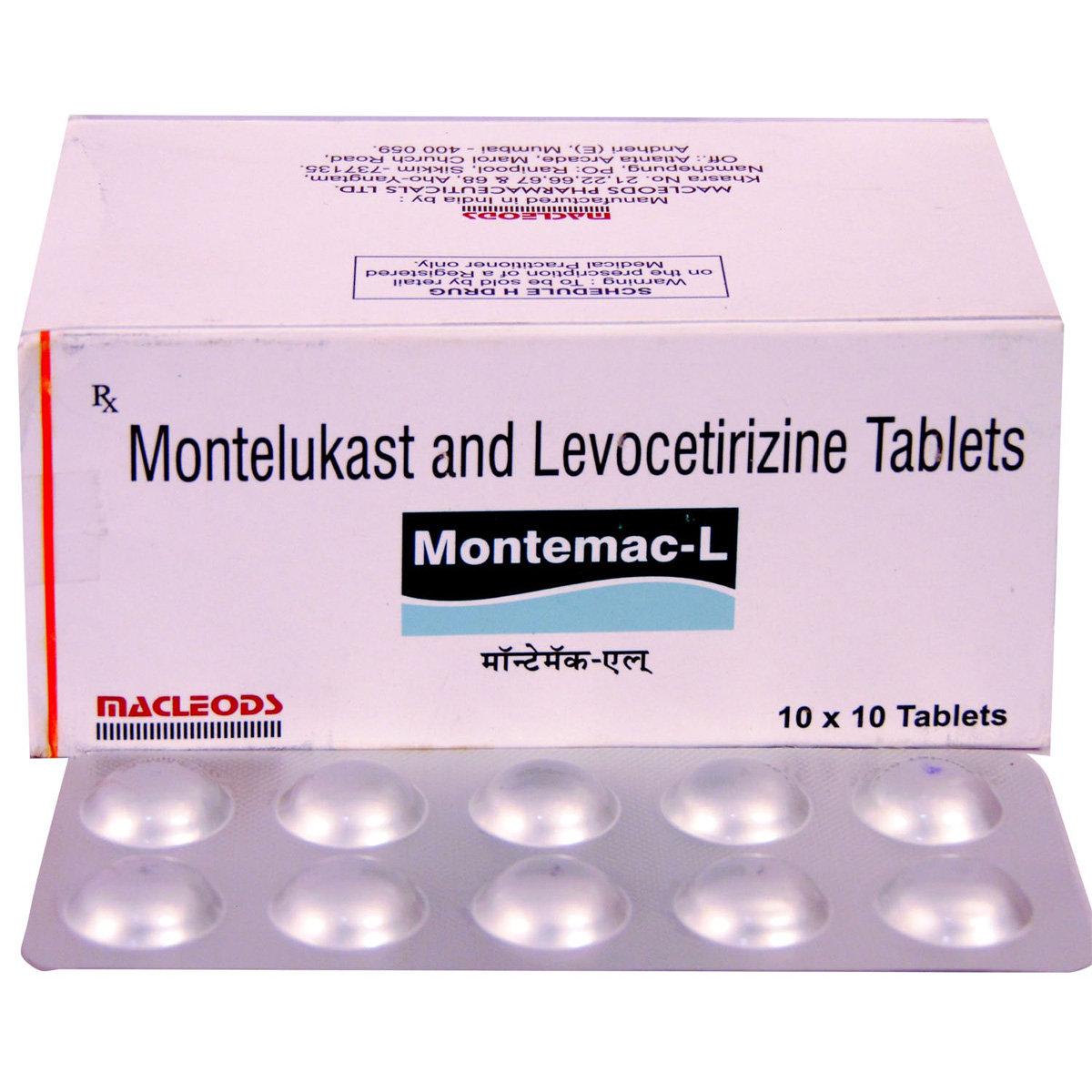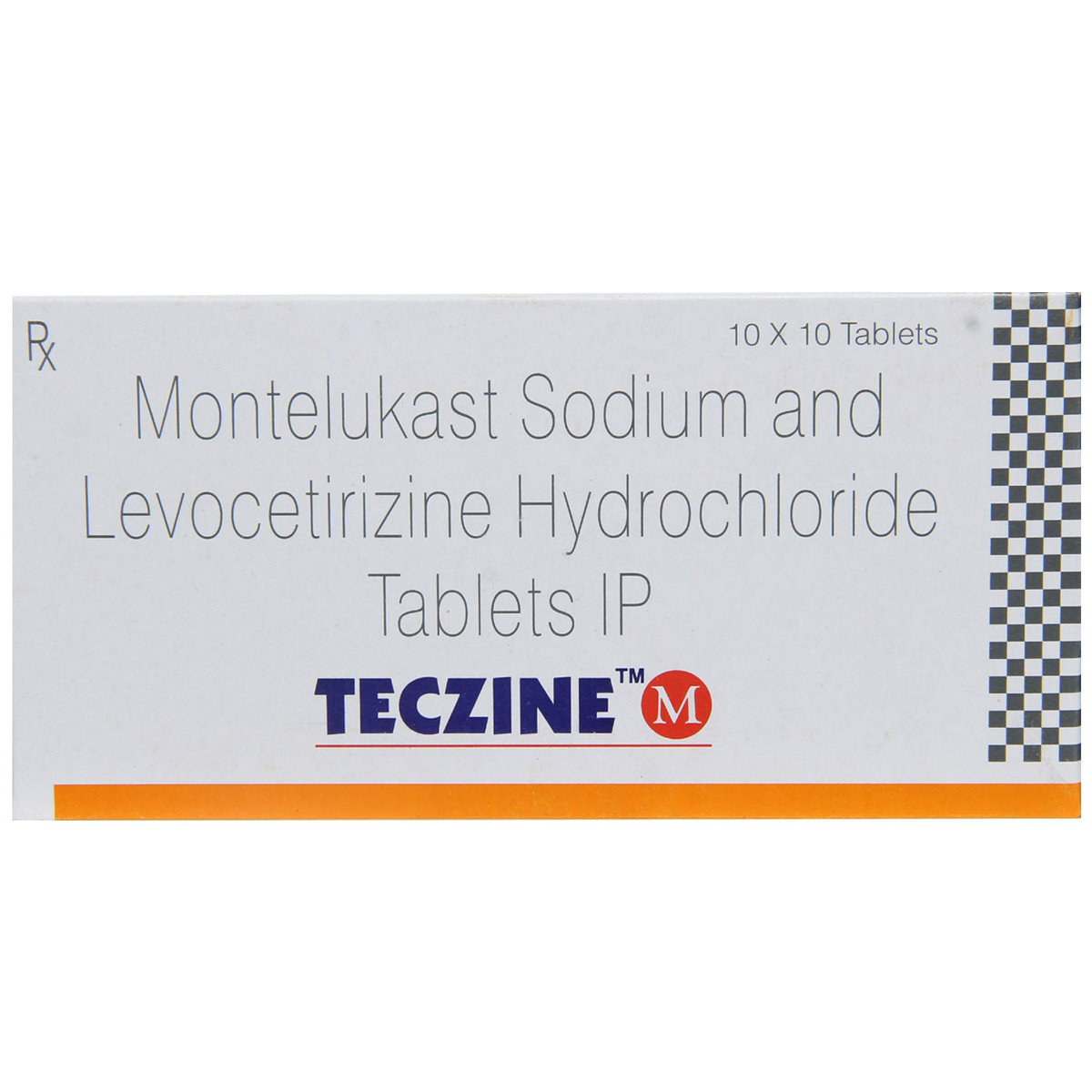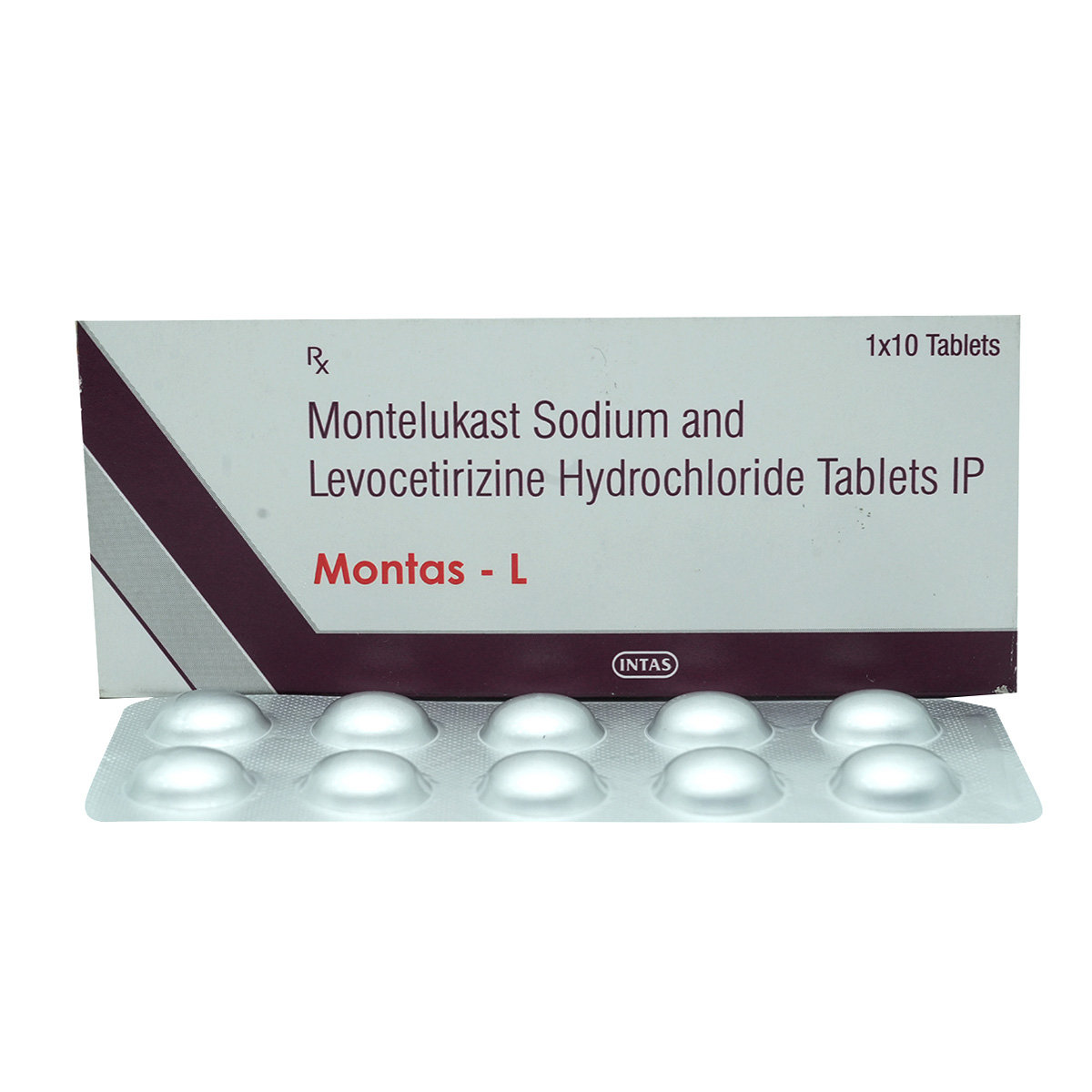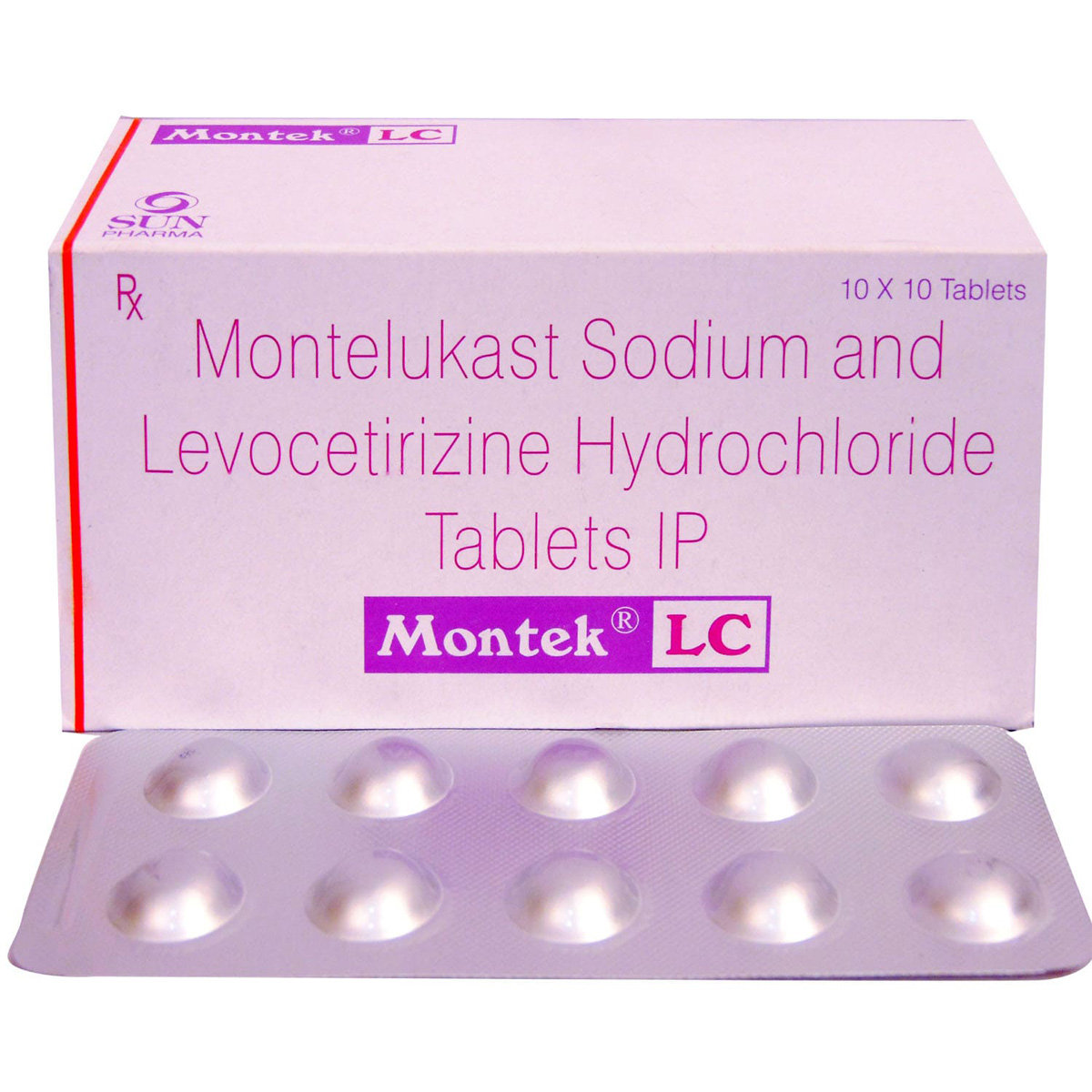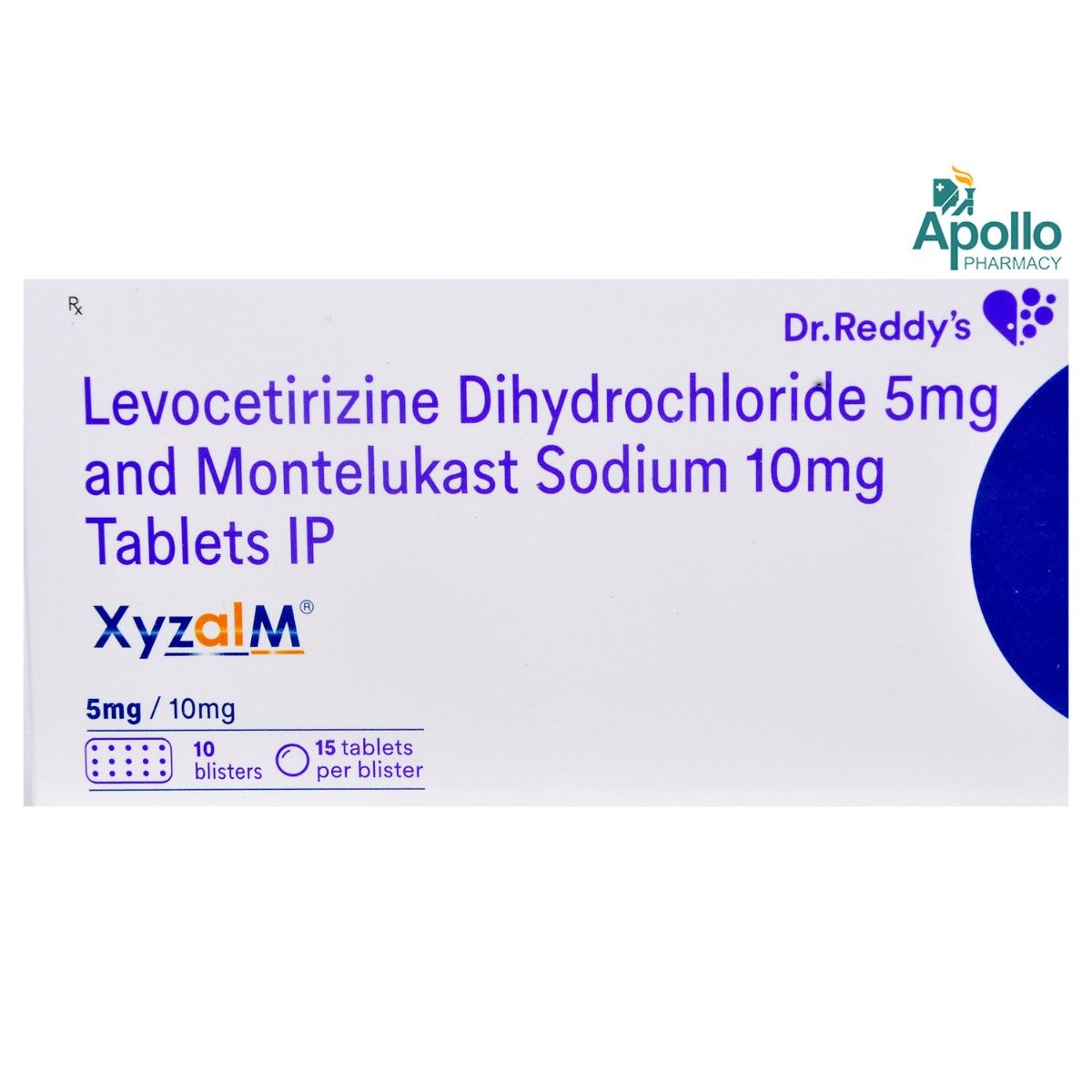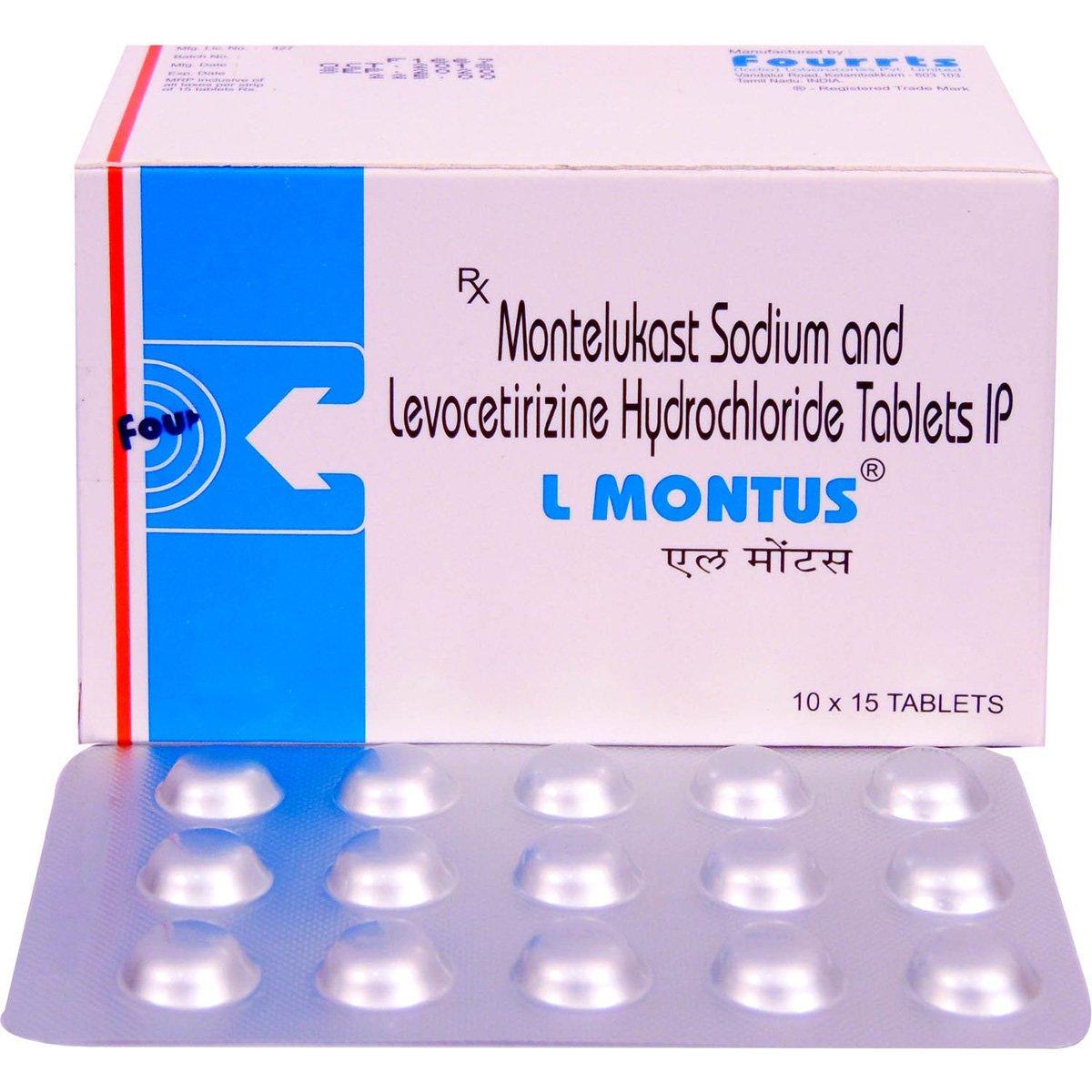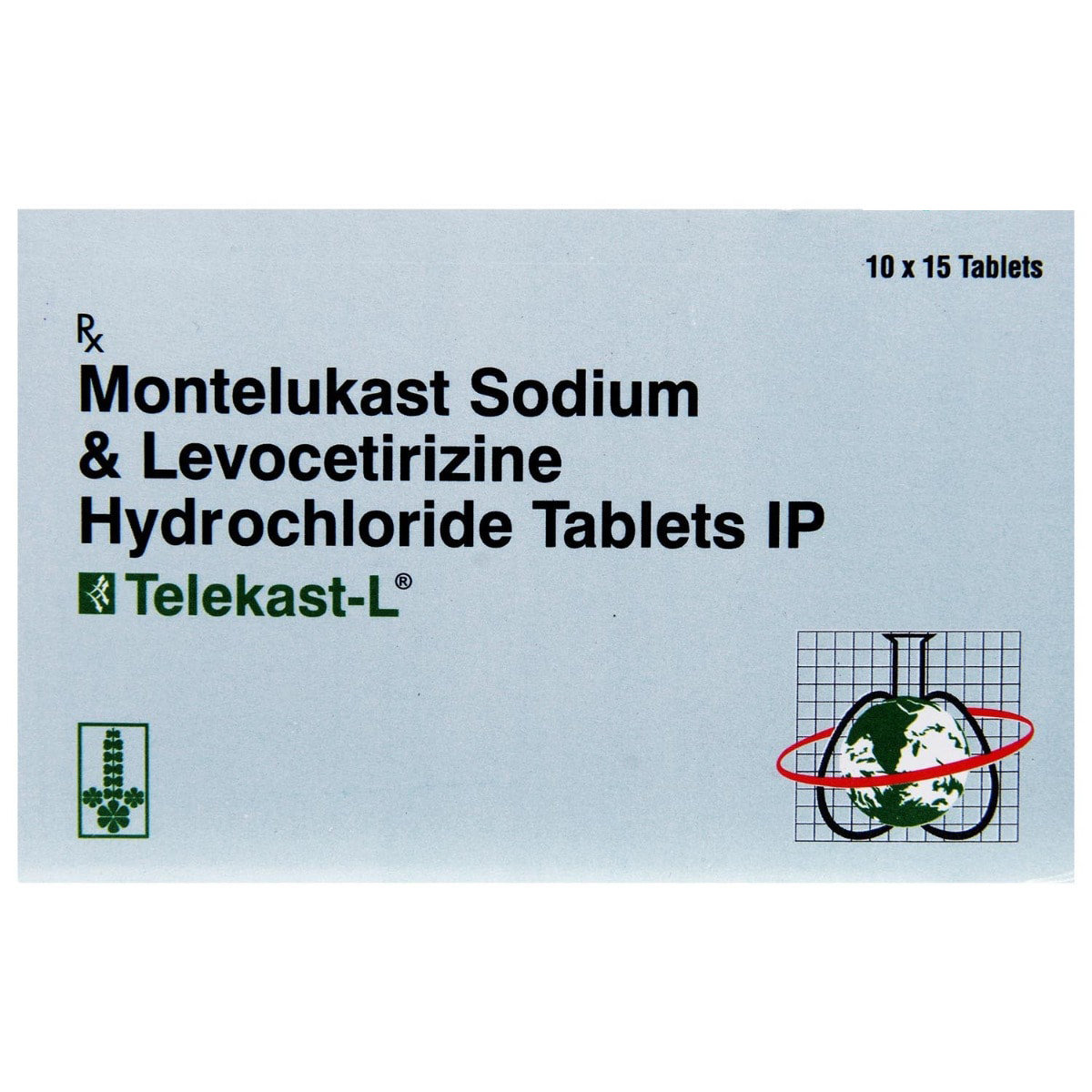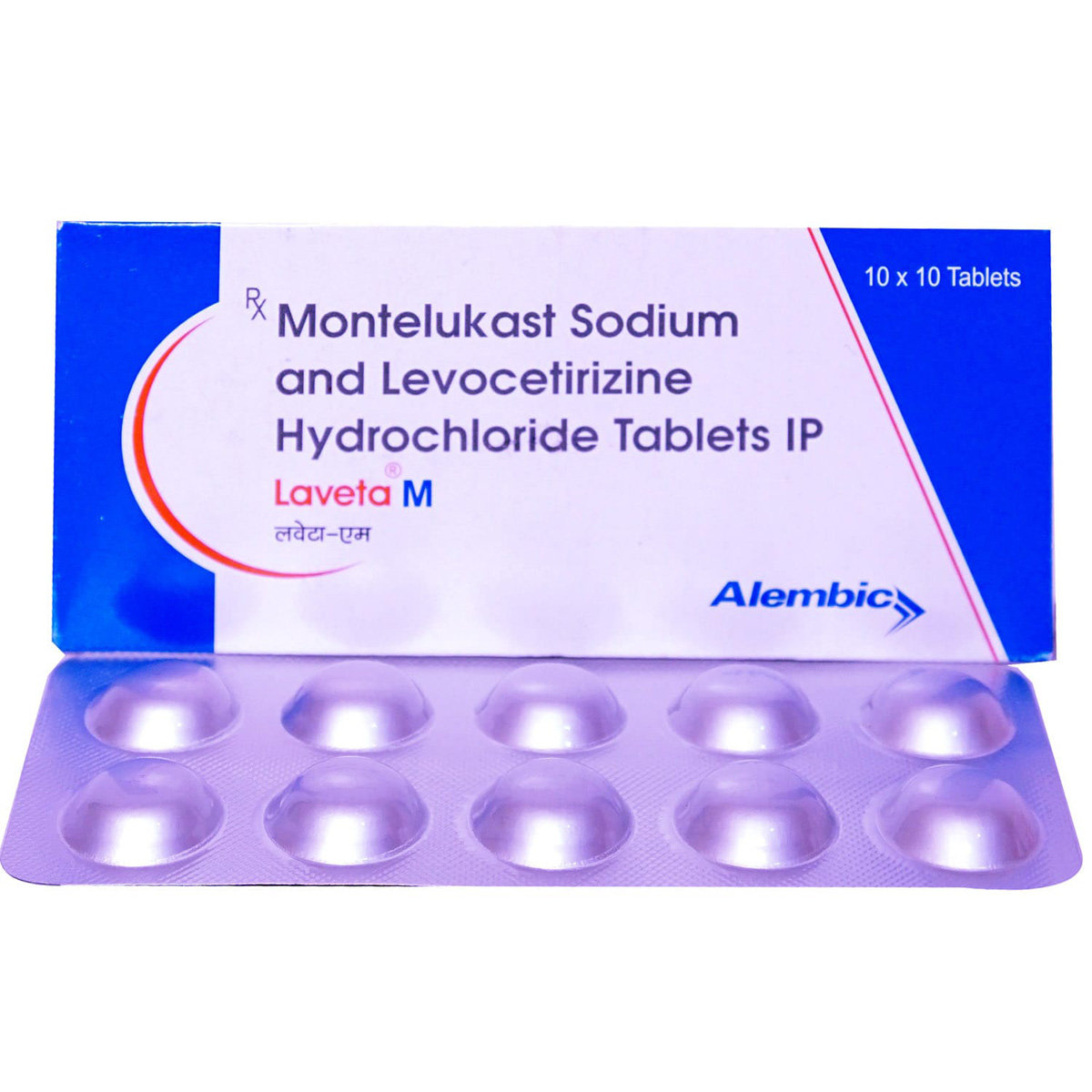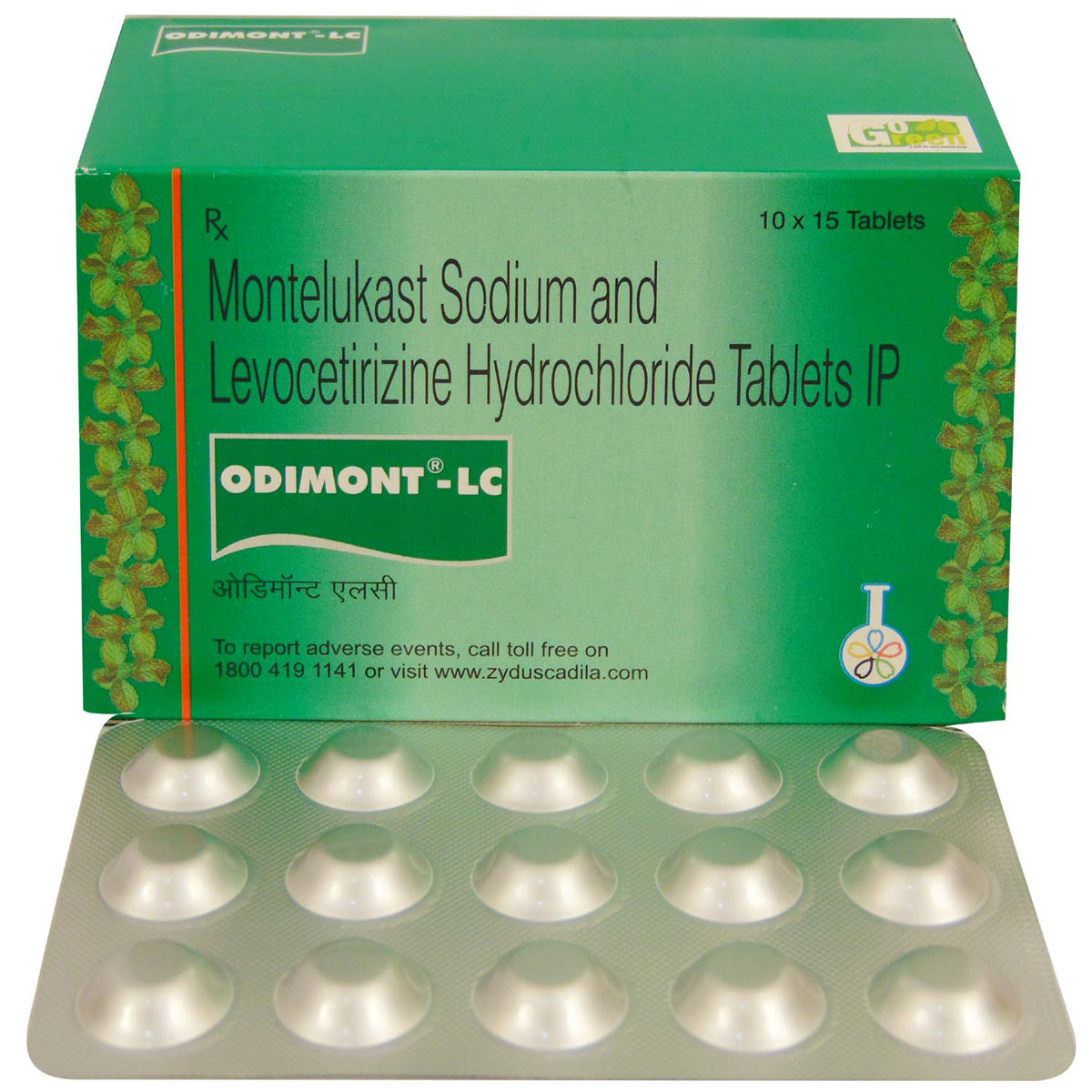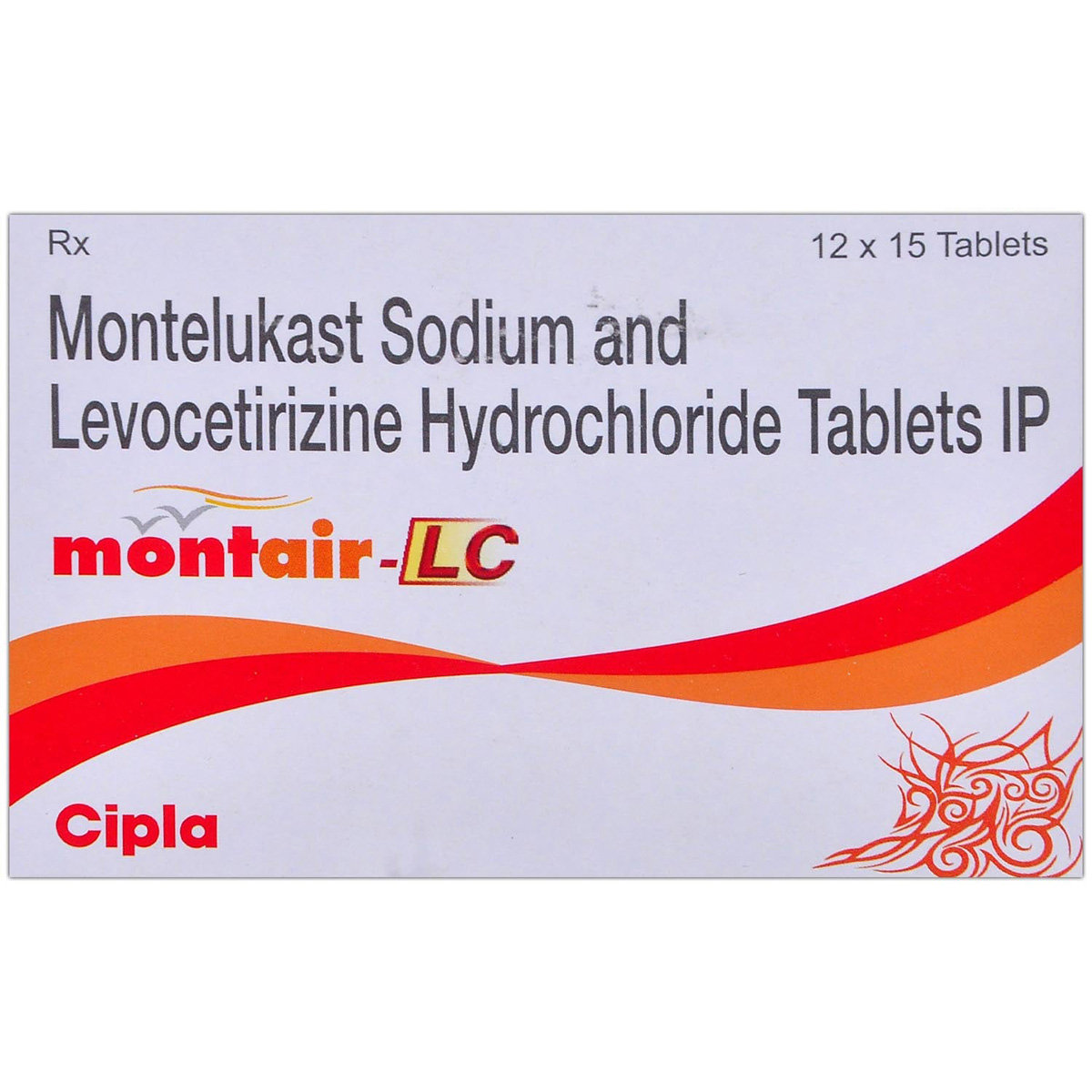Breaze-L Tablet 10's
MRP ₹138
(Inclusive of all Taxes)
₹20.7 Cashback (15%)
Provide Delivery Location
Online payment accepted
 Prescription drug
Prescription drugWhats That
Composition :
Manufacturer/Marketer :
Consume Type :
Expires on or after :
Return Policy :
About Breaze-L Tablet
Breaze-L Tablet belongs to a class of drugs called antihistamines or anti-allergics. It treats sneezing, runny nose, and allergic skin conditions due to various allergies and hay fever (seasonal allergy). An allergy is an immune system response to foreign elements typically not harmful to your body. These foreign elements are known as 'allergens.' Allergic condition varies from person to person. Some might be allergic to certain foods and seasonal allergies like hay fever, pollen or pet dander. One of the main symptoms of allergy is cough, which acts as a reflex action in the throat when mucus or foreign irritant enters the respiratory system.
Breaze-L Tablet is a combination of anti-allergic drugs, Levocetirizine and Montelukast. Levocetirizine blocks the effects of a chemical messenger known as 'histamine,' which is naturally involved in allergic reactions. It helps relieve allergy symptoms such as sneezing, running nose, watery eyes, itching, swelling, congestion, or stiffness. Montelukast is a leukotriene antagonist, which blocks a chemical messenger (leukotriene) and reduces inflammation and swelling in the nose. Collectively, both of them help to improve symptoms and relieve allergic symptoms.
Breaze-L Tablet is taken with or without food in a dose and duration as advised by the doctor. Your dose will depend on your health condition and how you respond to Breaze-L Tablet . You may sometimes experience nausea, skin rash, diarrhoea, vomiting, dry mouth, headache, skin rash, and fatigue. Most of these side effects of Breaze-L Tablet are temporary, do not require medical attention, and gradually resolve over time. However, if the side effects are persistent, reach out to your doctor.
Consume only if the doctor prescribes it. Never encourage self-medication or suggest your medicine to someone else. You should not take the Breaze-L Tablet if you are allergic to levocetirizine or montelukast, have severe liver or kidney problems, or have epilepsy. Check with your doctor if you're pregnant, breastfeeding, or taking other prescribed or non-prescribed medicines. If you are taking painkillers or allergy medication, please inform your doctor before starting Breaze-L Tablet .
Uses of Breaze-L Tablet
Directions for Use
Key Benefits
Breaze-L Tablet is an anti-allergic medication which contains Levocetirizine and Montelukast. Levocetirizine is an antihistamine (anti-allergy) which blocks the effects of a chemical messenger (histamine) naturally involved in allergic reactions. Thus, it helps relieve allergy symptoms such as sneezing, running nose, watery eyes, itching, swelling, congestion, or stiffness. On the other hand, Montelukast is a leukotriene antagonist, which blocks a chemical messenger (leukotriene) and reduces inflammation and swelling in the nose and lungs, making it easy to breathe. Collectively, both of them help to improve symptoms and treat a broad range of allergic conditions, thereby minimizing symptoms like sneezing, runny nose, coughing, watery eyes etc.
Storage
- Hydrate your body: Drink enough water to prevent dehydration and headaches.
- Calm Your Mind: Deep breathing and meditation can help you relax and relieve stress.
- Rest and Recharge: Sleep for 7-8 hours to reduce headache triggers.
- Take rest: lie down in a quiet, dark environment.
- Cold or warm compresses can help reduce tension.
- Stay Upright: Maintain good posture to keep symptoms from getting worse.
- To treat headaches naturally, try acupuncture or massage therapy.
- Over-the-counter pain relievers include acetaminophen and ibuprofen.
- Prescription Assistance: Speak with your doctor about more substantial drug alternatives.
- Severe Headaches: Seek emergency medical assistance for sudden, severe headaches.
- Frequent Headaches: If you get reoccurring headaches, consult your doctor.
- Headaches with Symptoms: Seek medical attention if your headaches include fever, disorientation, or weakness.
- Avoid driving or operating machinery or activities that require high focus until you know how the medication affects you.
- Maintain a fixed sleeping schedule, create a relaxing bedtime routine and ensure your sleeping space is comfortable to maximize your sleep quality.
- Limit alcohol and caffeine as these may worsen drowsiness and disturb sleep patterns.
- Drink plenty of water as it helps with alertness and keeps you hydrated and for overall well-being.
- Moderate physical activity can improve energy levels, but avoid intense workouts right before bedtime.
- Rest well; get enough sleep.
- Eat a balanced diet and drink enough water.
- Manage stress with yoga and meditation.
- Limit alcohol and caffeine.
- Physical activities like walking or jogging might help boost energy and make you feel less tired.
- If you experience nosebleeds or unusual bleeding after taking medication, seek medical attention right away and schedule an appointment to discuss your symptoms with your doctor.
- Your doctor may adjust your treatment plan by changing the dosage, switching to a different medication, or stopping the medication.
- If your doctor advises, take steps to manage bleeding and promote healing, such as applying pressure, using saline nasal sprays, or applying a cold compress, using humidifiers, avoiding blowing or picking your nose, and applying petroleum jelly to the nostrils.
- Schedule follow-up appointments with your doctor to monitor progress, adjust treatment plans, and prevent future episodes.
- Consult your doctor if you experience nasal congestion, runny nose, or sinus pressure after taking medication.
- Your doctor may adjust your treatment plan by changing your medication, adding new medications, or providing guidance on managing your rhinitis symptoms.
- If advised by your doctor, use nasal decongestants or saline nasal sprays to help relieve nasal congestion.
- Practice good hygiene, including frequent handwashing, avoiding close contact with others, and avoiding sharing utensils or personal items.
- Stay hydrated by drinking plenty of water and other fluids to help thin out mucus and soothe your nasal passages.
- Inform your doctor about dry mouth symptoms. They may adjust your medication regimen or prescribe additional medications to manage symptoms.
- Drink plenty of water throughout the day to help keep your mouth moist and alleviate dry mouth symptoms.
- Chew sugar-free gum or candies to increase saliva production and keep your mouth moisturized.
- Use saliva substitutes, such as mouthwashes or sprays, only if your doctor advises them to help moisturize your mouth and alleviate dry mouth symptoms.
- Avoid consuming smoking, alcohol, spicy or acidic foods, and other irritants that may aggravate dry mouth symptoms.
- Schedule regular dental check-ups to keep track of your oral health and handle any dry mouth issues as they arise.
- Preventing Vomiting (Before it Happens)
- Take medication exactly as prescribed by your doctor. This can help minimize side effects, including vomiting.
- Having a small meal before taking your medication can help reduce nausea and vomiting.
- Talk to your doctor about taking anti-nausea medication along with your prescribed medication.
- Managing Vomiting (If it Happens)
- Try taking ginger in the form of tea, ale, or candy to help alleviate nausea and vomiting.
- What to Do if Vomiting Persists
- Consult your doctor if vomiting continues or worsens, consult the doctor for guidance on adjusting your medication or additional treatment.
Drug Warnings
Tell your doctor if you are pregnant, plan to become pregnant, or are breastfeeding. If you have kidney problems, dose adjustment might be required; the doctor will do it depending upon your disease's condition. Please inform your doctor if you have a problem passing urine and have epilepsy (fits) before starting Breaze-L Tablet . If you are supposed to undergo skin testing, the doctor might advise you to stop taking Breaze-L Tablet 72 hours before the test as it decreases response to skin prick test. Patients should be cautioned against getting engaged in work that requires too much mental alertness, like operating machinery or driving a motor vehicle after intake of Breaze-L Tablet . Please consult your doctor immediately if you experience aggression, anxiety, or depression after taking Breaze-L Tablet . It is advised to avoid contact with known allergens (allergy-causing agents) such as pollen, dust, etc. Certain food items are known to cause allergies to you. Concurrent use of Breaze-L Tablet with alcohol or other antidepressants should be avoided to reduce your mental alertness. Even if you are asymptomatic and feel good, do not stop taking the Breaze-L Tablet as it stopping abruptly may lead to an acute attack of asthma.
Drug-Drug Interactions
Drug-Drug Interactions
Login/Sign Up
Using esketamine together with Breaze-L Tablet may increase side effects (drowsiness, confusion, difficulty concentrating, and impairment in thinking, judgment, reaction speed, and motor coordination).
How to manage the interaction:
Taking Breaze-L Tablet with Esketamine together can result in an interaction, but it can be taken if a doctor has advised it. Do not discontinue any medications without consulting a doctor.
Coadministration of Rifapentine with Breaze-L Tablet may reduce the blood levels and effects of Breaze-L Tablet. This can lead to low treatment outcomes.
How to manage the interaction:
Taking Rifapentine with Breaze-L Tablet together can possibly result in an interaction, it can be taken if your doctor has advised it. If you experience increased side effects such as headache, fever, sore throat, cough, abdominal pain, diarrhea, earaches, runny nose, or behavior and mood changes consult a doctor. Do not discontinue any medications without consulting a doctor.
Coadministration of Miconazole with Breaze-L Tablet may increase the blood levels and effects of Breaze-L Tablet. This increases the risk or severity of side effects.
How to manage the interaction:
Although there is a possible interaction between miconazole and Breaze-L Tablet, you can take these medicines together if prescribed by your doctor. However, if you experience any symptoms such as fever, sore throat, cough, stomach pain, diarrhea, earache, runny nose, or uncommon, depression, confusion, difficulty concentrating, anxiety, hallucinations, irritability. memory impairment, restlessness, sleep walking, Consult a doctor immediately. Do not stop using medications without a doctor's advice.
Coadministration of Breaze-L Tablet and Phenytoin may reduce the blood levels and effects of Breaze-L Tablet. This can lead to low treatment outcomes.
How to manage the interaction:
Taking Breaze-L Tablet and Phenytoin may interact with one another, but they can be taken together if your doctor has prescribed them. However, if you experience signs such as headache, fever, sore throat, cough, abdominal pain, diarrhoea, earache, runny nose, or behaviour and mood changes, consult a doctor immediately. Do not discontinue any medications without consulting a doctor.
Coadministration of Breaze-L Tablet and primidone can reduce the levels and effects of Breaze-L Tablet.
How to manage the interaction:
Taking Breaze-L Tablet and Primidone together can possibly result in an interaction, it can be taken if prescribed by a doctor. However, if you experience any unusual symptoms, contact a doctor immediately. Do not discontinue any medications without consulting a doctor.
Coadministration of Breaze-L Tablet and rifabutin can reduce the levels and effects of Rifabutin. This can lead to low treatment outcomes.
How to manage the interaction:
Taking Breaze-L Tablet and rifabutin together can possibly result in an interaction, it can be taken if your doctor has advised it. However, if you experience increased side effects such as headache, fever, sore throat, cough, abdominal pain, diarrhea, earache, runny nose, or behavior and mood changes consult a doctor. Do not discontinue any medications without consulting a doctor.
Drug-Food Interactions
Drug-Food Interactions
Login/Sign Up
Diet & Lifestyle Advise
- Some anti-inflammatory compounds in ginger can relax membranes in the airways, reducing coughing.
- The immune system is affected by stress and raises the risk of being sick. An individual can exercise regularly, meditate, do deep breathing, and try progressive muscle relaxation techniques to relieve stress.
- Try to sleep 7-9 hours each night to stay fit and safe.
- It is advised to avoid contact with known allergens (allergy-causing agents) such as pollen, dust, etc. Certain food items are known to cause allergies to you.
- Maintain personal hygiene and keep your surroundings clean.
Side Effects of Breaze-L Tablet
- Nausea
- Skin rash
- Diarrhoea
- Vomiting
- Dry mouth
- Headache
- Skin rash
- Fatigue (Weakness)
Habit Forming
Therapeutic Class
All Substitutes & Brand Comparisons
RX
Montina-L Tablet 10's
Aristo Pharmaceuticals Pvt Ltd
₹77.5
(₹6.98 per unit)
43% CHEAPERRX
Monticope Tablet 10's
Mankind Pharma Pvt Ltd
₹103
(₹9.27 per unit)
25% CHEAPERRX
Levocet M Tablet 10's
Hetero Drugs Ltd
₹112
(₹10.08 per unit)
18% CHEAPER
Drug-Diseases Interactions
Drug-Diseases Interactions
Login/Sign Up
FAQs
Drug-Drug Interactions Checker List
- DICLOFENAC
- NAPROXEN
- IBUPROFEN
- FLUCONAZOLE
- MICONAZOLE
- ASPIRIN
- VORICONAZOLE
- AMIODARONE
Special Advise
- Staying hydrated is vital for those with a cough or cold. Drinking liquids at room temperature can alleviate cough, runny nose, and sneezing.
Disease/Condition Glossary
Allergies: Allergies are the reaction of the immune system to a foreign material that is usually not harmful to the body. These foreign substances are referred to as 'allergens.' Allergic reactions differ from person to person. Some people may be allergic to certain foods or suffer from seasonal allergies such as hay fever. On the other hand, others may be allergic to pollen or pet dander.
Hay fever: Hay fever/allergic rhinitis is an allergic reaction to pollen, typically when it comes into contact with the mouth, nose, eyes and throat. Hay fever symptoms include sneezing and coughing, a runny or blocked nose, itchy, red or watery eyes, itchy throat, mouth, nose and ears, loss of smell, pain around the temples and forehead, headache, earache and feeling tired.

Have a query?
Alcohol
Safe if prescribed
It is not advised to consume alcohol while taking Breaze-L Tablet as it leads to excessive drowsiness.
Pregnancy
Consult your doctor
Your doctor will weigh the benefits and potential risks before prescribing them. Please consult your doctor.
Breast Feeding
Consult your doctor
Your doctor will weigh the benefits and potential risks before prescribing them. Please consult your doctor.
Driving
Safe if prescribed
Breaze-L Tablet should be used with caution while driving as it may interfere with driving capabilities. You may feel drowsy or sleepy after taking Breaze-L Tablet .
Liver
Consult your doctor
Breaze-L Tablet can be safely taken, and usually does not affect the people with a liver condition.
Kidney
Consult your doctor
Breaze-L Tablet to be taken with caution, especially if you have a history of kidney diseases/conditions as dose adjustment might be required.
Children
Safe if prescribed
Breaze-L Tablet is not recommended for children below two years of age without the doctor's consent. However, consult your paediatrician before giving Breaze-L Tablet to your child






